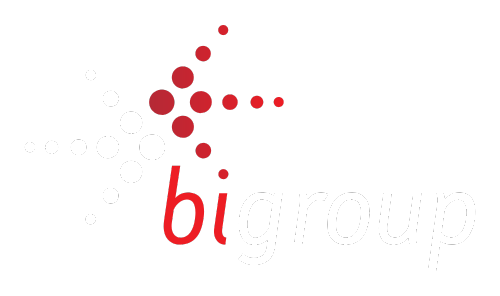Sustainability reporting has become a fundamental aspect of corporate governance, with organisations required to disclose their environmental, social, and governance (ESG) data to meet regulatory and voluntary standards. Frameworks such as the Corporate Sustainability Reporting Directive (CSRD), the Australian Sustainability Reporting Standards (AABS S1 and AABS S2), the Business Responsibility and Sustainability Reporting (BRSR), the Global Reporting Initiative (GRI), the International Financial Reporting Standards (IFRS), and the Sustainability Accounting Standards Board (SASB) set the foundation for standardised sustainability disclosures.
However, ensuring compliance with these diverse frameworks can be complex and resource-intensive. This is where AI plays a transformative role, enabling organisations to automate, validate, and enhance their sustainability reports with greater efficiency and accuracy.
Understanding Key Sustainability Reporting Frameworks
Each sustainability reporting framework has distinct requirements:
- CSRD: A European Union directive requiring large companies to disclose detailed ESG data, including double materiality assessments, which consider both financial risks and broader environmental and social impacts.
- ASRS: Australia’s framework for climate-related disclosures, designed to align with international sustainability reporting standards.
- BRSR: India’s mandatory reporting framework integrating financial and non-financial disclosures to promote responsible business conduct.
- GRI: A globally recognised voluntary framework that provides comprehensive guidelines for sustainability reporting across industries.
- IFRS: Introduced sustainability-related disclosure standards through the ISSB, focusing on financial materiality and investor-centric reporting.
- SASB: An industry-specific framework offering ESG disclosure standards to help investors assess a company’s sustainability risks and opportunities.
Navigating these frameworks requires businesses to structure their data accurately, ensuring alignment with specific reporting requirements. AI enhances this process by automating data collection, validating accuracy, and generating insightful narrative reports tailored to each framework.
The Role of AI in Sustainability Reporting
AI supports sustainability reporting by addressing three key areas: data collection and validation, qualitative response generation, and risk identification.
Data Collection and Validation
- AI-powered data integration tools consolidate ESG data from multiple sources, including internal databases, third-party audits, IoT sensors, and regulatory filings.
- Machine learning models detect inconsistencies, missing values, and anomalies in sustainability data, ensuring that disclosures meet reporting standards.
- Natural language processing (NLP) techniques extract relevant ESG insights from unstructured data sources such as corporate sustainability reports, legal documents, and financial statements.
Qualitative Response Generation
- AI-driven content generation tools assist organisations in drafting qualitative ESG responses by analysing previous reports, industry benchmarks, and regulatory guidelines.
- NLP models refine textual responses to ensure alignment with compliance requirements while maintaining a clear and coherent narrative.
- AI enhances storytelling in sustainability reports by structuring responses around key impact areas, such as emissions reduction, social responsibility, and corporate governance initiatives.
Risk Identification and Compliance
- AI-driven predictive analytics identify ESG-related risks, such as supply chain vulnerabilities, carbon footprint inconsistencies, or regulatory non-compliance.
- Automated audit workflows ensure that sustainability reports undergo rigorous validation before submission.
- AI provides real-time monitoring of sustainability metrics, allowing organisations to adjust their ESG strategies proactively based on evolving regulatory landscapes.
Improving Data Integration for ESG Reporting
Data accuracy is critical in sustainability reporting. AI enhances data integration by:
- Aggregating structured and unstructured data from multiple sources, including enterprise resource planning (ERP) systems, carbon tracking software, and financial reporting platforms.
- Using advanced algorithms to clean, normalise, and standardise ESG data, ensuring consistency across reporting frameworks.
- Automating the mapping of sustainability data to specific framework requirements, reducing manual effort and improving reporting accuracy.
- Implementing blockchain-based verification methods to enhance data transparency and integrity, ensuring auditability of ESG disclosures.
Ensuring Compliance Through Approval and Audit Workflows
A well-structured approval and audit process is essential for sustainability reporting credibility. AI optimises these workflows by:
- Automating workflow approvals to ensure reports are reviewed by relevant compliance teams before submission.
- Using AI-powered anomaly detection to flag discrepancies and highlight areas requiring further validation.
- Providing real-time audit trails that document modifications, approvals, and compliance checkpoints, ensuring accountability in reporting.
- Enabling organisations to conduct predictive compliance assessments, forecasting potential reporting challenges based on historical trends.
Enhancing Transparency and Efficiency in ESG Reporting
AI-driven sustainability reporting tools empower organisations to produce high-quality ESG reports efficiently. By automating data integration, refining qualitative responses, and strengthening compliance workflows, AI reduces reporting complexity and enhances transparency.
Future-Proof Your Sustainability Reporting Strategy
As sustainability regulations continue to evolve, AI is becoming an indispensable tool for organisations seeking to enhance their ESG reporting. Companies that integrate AI-driven solutions will be better positioned to navigate complex disclosure frameworks, meet compliance requirements, and build stakeholder trust.
Want to elevate your sustainability reporting and ensure compliance with global frameworks? Leverage AI-powered solutions today to streamline your ESG disclosures and enhance transparency.
Contact us now to learn more!

